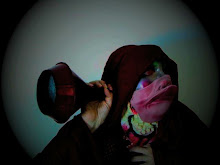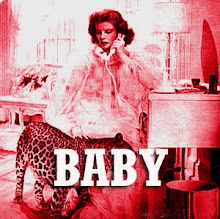 I'm making a few notes here about the role of comedy in women's experimental (xxperimental) writing. I've been thinking how it acts as a transgressive model and a point of departure for language frames/meanings etc. Always interested in the limits of language. The tie between speech and conduct is bordered by comedy and moral indignation....comedy does not have the same ethical standards as everyday life...and thats an opening in the frame to me.
I'm making a few notes here about the role of comedy in women's experimental (xxperimental) writing. I've been thinking how it acts as a transgressive model and a point of departure for language frames/meanings etc. Always interested in the limits of language. The tie between speech and conduct is bordered by comedy and moral indignation....comedy does not have the same ethical standards as everyday life...and thats an opening in the frame to me.
Comedy is also a series of lampoons/routines with no necessary or probable connection between them...much like experimental work.
Aristotle said comedy was the imitation of inferior people, and women are the most common theme in comedy.
When a woman speaks comedy herself she is thought of as doubly indecent. The lewd joke by her is the burlesque.. a farce-slapstick-the hilarious-improbably absurd character becomes a joke itself, spectacle and sound are lifted high, perhaps even past the importance of logos (word)
Think of Cary Grant and Hepburn Screwball film of 1940's.
Comedy though is also a firm denial of the underlying principle of tragedy.
Comedy offends. The question of aesthetic offense is interesting, who is offended and why do they choose to be offended? Is there a negative aesthetics, and what are its limits? The Greeks understood comedy as the 'Gods view' of life, unfortunately because of the loss of Aristotle's Comedy western civilization only has his Tragedies to shape our frames of being from, and since the middle ages, through the renaissance, right down to the current novel frame, narratives tragedy dominates.
The monotheistic view of one god, one book, one view, one voice is turned on its head by the 'other' any other and the fool- comedy... comedy is the fool. Comedy is in relation to authority the many, its other...
And what is off stage/off scene is itchly...more/than
'whats the difference between a circus and a strip club...
the circus only  has a bunch of cunning stunts'
has a bunch of cunning stunts'
Comedy uses dry or realistic humor:
cartoonist humor
funny words/language
funny objects
lampoon
romance gone wrong ie pain
satire
the black
the ribald
it uses conflict finding the ridiculous and play in obstacles or situations, it exaggerates when? where?
it uses negative aesthetics, ugliness, as a property of the object or the person or the situation
Comedy also circles around itself, finding the joke in being offended, the desire to avoid offense- which is a common trope and the avoiding of causing offense.
Still womens bodies are 'the' most offensive subject matter ... cunt...is rated the most offensive word/place in language.
I'm very interested in these and other linkage between comedy and xxperimental writing something I'm pursuing...the humor in Stein; 'No sense in no sense innocence of what of not and what of delight. In no sense innocence in no sense and what in delight and not, in no sense innocence in no sense no sense what, in no sense and delight, and in no sense and delight and not in no sense and delight and not, no sense in no sense innocence and delight'...the droll humor of Ronnell in Stupidity a very good read on the said subject; Scalapino work so dry it almost cracks /open...Carol Maso having a bit of a laugh at herself... The Australian writer Ania Walwicz in Scrambler... 'you jerk hid in what was said wouldn't you just a fine thing for her what she wants to do you just use said that she can't you won't give them plenty of i'm untended for king what does out this on a jiff a great greater greta thing just you in come back to me the then said rings for her things were gone just a laugh...'
18.11.07
comedy/transgression in womens experimental writing
Labels: comedy/transgression
Subscribe to:
Post Comments (Atom)













1 comment:
Fascinating. There is a deep connection between comedy and liberation, personal and political, as you have pointed out. Your site is an amazing place, of great interest to someone who is far less wellread and intelligent but equally interested in the connection between sound and idea. And you are Australian too? I will be back often for mindfood, thanks.
Post a Comment